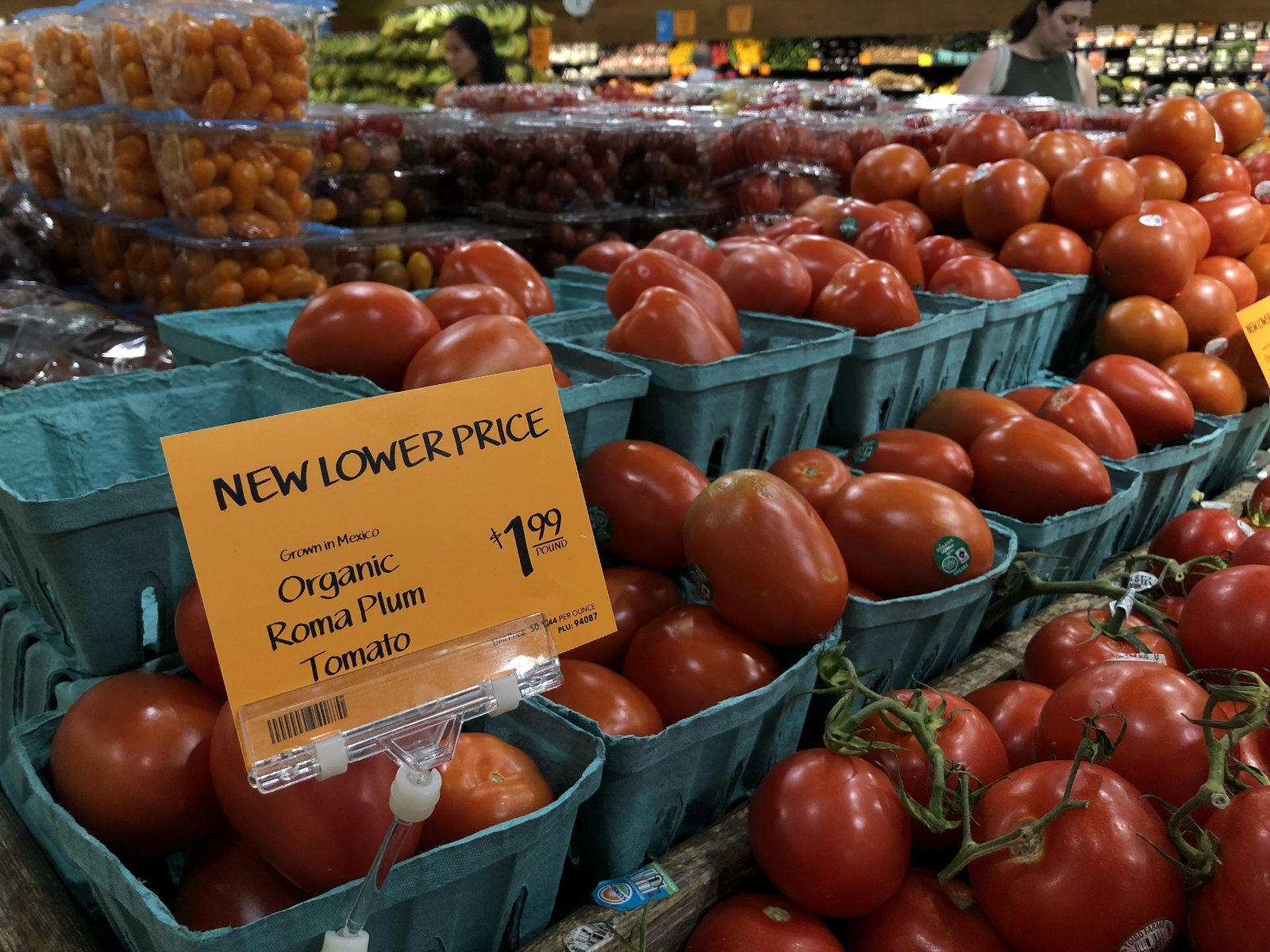
A group representing importers said it was gratified that the Trump administration is lifting the tariffs on Mexican tomatoes. But it cautioned that beefed-up inspections could act as another barrier to free trade. (Anna-Rose Gassot/AFP/Getty Images)
The Trump administration struck a tentative deal to lift tariffs on imported tomatoes from Mexico. But importers warn the agreement could still put protectionist roadblocks in the path of $2 billion worth of the produce.
Mexico supplies more than half the fresh tomatoes sold in the U.S., and imports have more than doubled since 2002. Florida growers, who used to dominate the market for tomatoes in the winter and spring, have long complained that Mexico unfairly subsidizes its tomato crop.
In May, the Trump administration slapped a 17.5% tariff on imported tomatoes and resumed an investigation into whether Mexico is "dumping" the fruit at artificially low prices. The new agreement, if finalized next month, will suspend that investigation and lift the tariffs.
"This draft agreement meets the needs of both sides and avoids the need for antidumping duties," Secretary of Commerce Wilbur Ross said in a statement.
Florida growers welcomed the deal.
"The agreement establishes unprecedented measures and enforcement provisions that will help protect American tomato farmers from injurious dumped Mexican tomatoes," said a statement from the Florida Tomato Exchange, a growers group.
A group representing importers said it was gratified that the administration is lifting the tariffs on Mexican fruit. But it cautioned that beefed-up inspections could act as another barrier to free trade.
The Fresh Produce Association of the Americas, which represents more than 100 companies in the produce-importing hub of Nogales, Ariz., warned the agreement could require border inspection of more than 90% of imported tomatoes.












